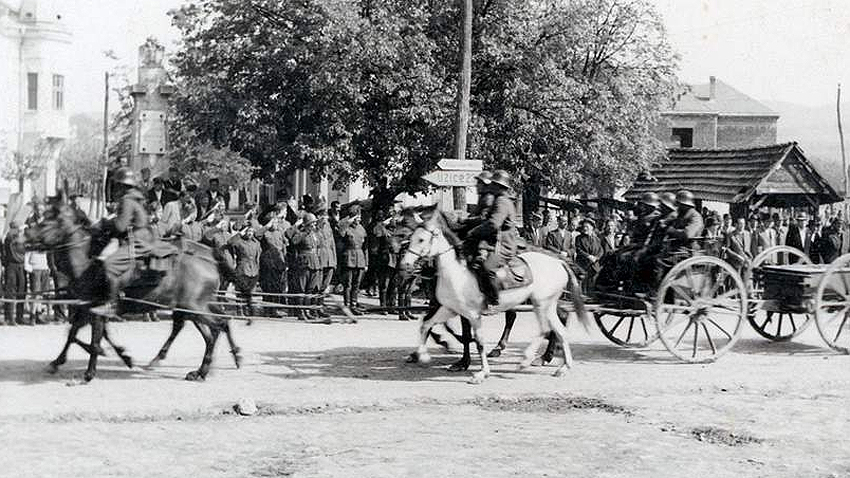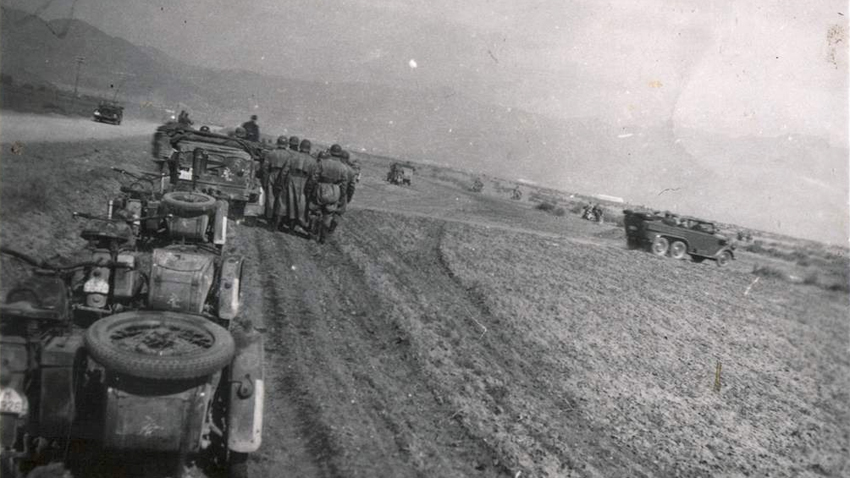The 70th anniversary of the end of World War II has prompted the Archives State Agency to present its new digital collection related to the most devastating world conflict so far. The collection is part of the “Bulgarian Wars" project dedicated to the three major historical events that we mark in 2015: the 70th anniversary of the end of World War II, 100 years after Bulgaria joined World War I, and 130 years after the Serbo-Bulgarian War.

What is the number of Bulgarian military casualties in World War II? According to the chairman of the Archives State Agency, Assoc. Prof. Mihail Gruev one of the biggest problems in Bulgarian history is linked to finding out the exact number of those who were killed.
"The most important result of our work is establishment of their number. So far we have we have reached the figure of 12 587 killed in the Second World War. We are talking about the whole period of Bulgarian participation in the war – from joining the Axis on March 1, 1941 until the capitulation of Germany. During the Paris Conference figures of 32,000, 40,000 dead were reported. There are large differences mostly related to an unspecified number of those who went missing in the war. The number of the wounded was also sometimes added up to the number of the dead."
On September 9, 1944 a coup d'etat took place in Bulgaria. The new government signed an armistice with the Soviet Union and the Bulgarian army joined the war against Germany. "In the period before September 9, 1944 we can talk only about Bulgarians killed in guerrilla actions and during enemy bombings. Only after that Bulgarians soldiers died in military actions against Germany,” Mihail Gruev says.

The agency has a list of German soldiers who received treatment in Bulgarian hospitals or were killed when overcoming the Greek defense line of Metaxas in 1941. There is also a list of deceased Soviet soldiers in the country. It includes primarily soldiers injured and transported to Bulgaria after the Jassy–Kishinev Operation of the 3rd Ukrainian Front. "Our web site allows Bulgarian citizens to seek information about their grandfathers or great-grandfathers. But it also allows Germans or Russians, to find out where their relatives were buried.”
English: Alexander MarkovPhotos: archives.bg
June 11, 2007 - US President George W. Bush Jr. visits Sofia. According to protocol, the press conference he held for the media took place among the exhibits of the National Archaeological Museum. The official lunch for the guest was later held at the..
On November 10, 1989, a plenum of the Central Committee of the Bulgarian Communist Party ousted its General Secretary and Chairman of the State Council, Todor Zhivkov. This marked the symbolic beginning of the transition from a one-party system to..
Archaeologists have explored a necropolis in the Kavatsi area near Sozopol. The perimeter in which it is located is part of the history of Apollonia Pontica and is dated to the 4th century BC. "This is a site with interesting burials in which a nuance..
In the secular chronicles of post-liberation Bulgaria, Metropolitan Kliment of Tarnovo is known as Vasil Drumev – a notable writer and public figure, he..

+359 2 9336 661
